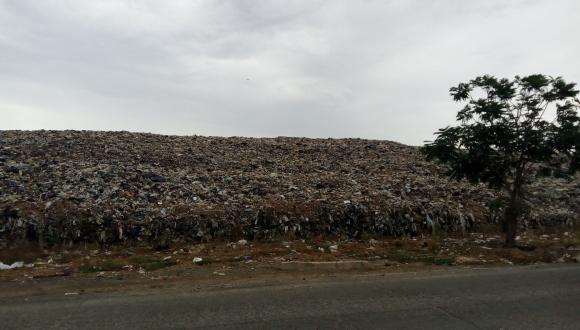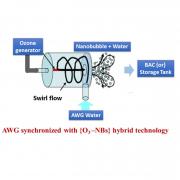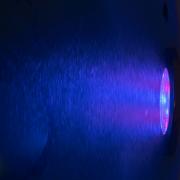Municipal leachate treatment by AOP
In collaboration with Prof. Mohan S., Dept. of Civil Engineering, IIT Madras, India
In collaboration with Prof. Mohan S., Dept. of Civil Engineering, IIT Madras, India
In most of the developing nations like India, almost 85 percent of generated waste goes to open dumping (WHO) due to improper segregation of wastes. Even in many developed countries ultimate disposal option is use of landfill. The urbanization has a major impact on municipal solid waste generation rate and the rate has been reported phenomenal increasing rate in general. The increasing municipal solid waste generation further adds to the problems associated with open dumps. One of the major problems of concern is the ground water contamination by leachate from the open dumps. The interaction of waste with water especially during rainy periods or summer that percolates through the open dumps produces highly polluted wastewater termed as leachate. There are many factors like affecting the quality and the quantity of such leachate, i.e., seasonal weather variation, landfilling technique, piling and compaction method, waste type and composition, structure of the landfill, etc.
Leachate contains large amount of organic matter of which Humic substances are the major group along with ammonia nitrogen, toxic metals, chlorinated organic, phenolic compounds, pesticide residues and endocrine disruptors like phthalates which are considered as priority pollutant by US EPA. Biological process has very less efficiency in removing the phthalates due to its toxic characteristics. Physicochemical processes have been successfully applied for the removal of recalcitrant substances from stabilized leachate and refining the biologically pre-treated leachate. Among various physicochemical processes, Advanced Oxidation Processes (AOPs) have been widely applied to complete removal of phthalates in leachate that are non-biodegradable and/or toxic to microorganisms.
At present, we are working on treatment of phthalates by considering Diethyl phthalate (DEP) as a model compound due to its high solubility and toxic in nature by Ozonation (O3) and Ozone in combination with Hydrogen peroxide (O3/ H2O2) for complete degradation of phthalates and its transformation products. Our main focus will be of complete treatment process which degrades DEP and other organic contaminants from the leachate.





